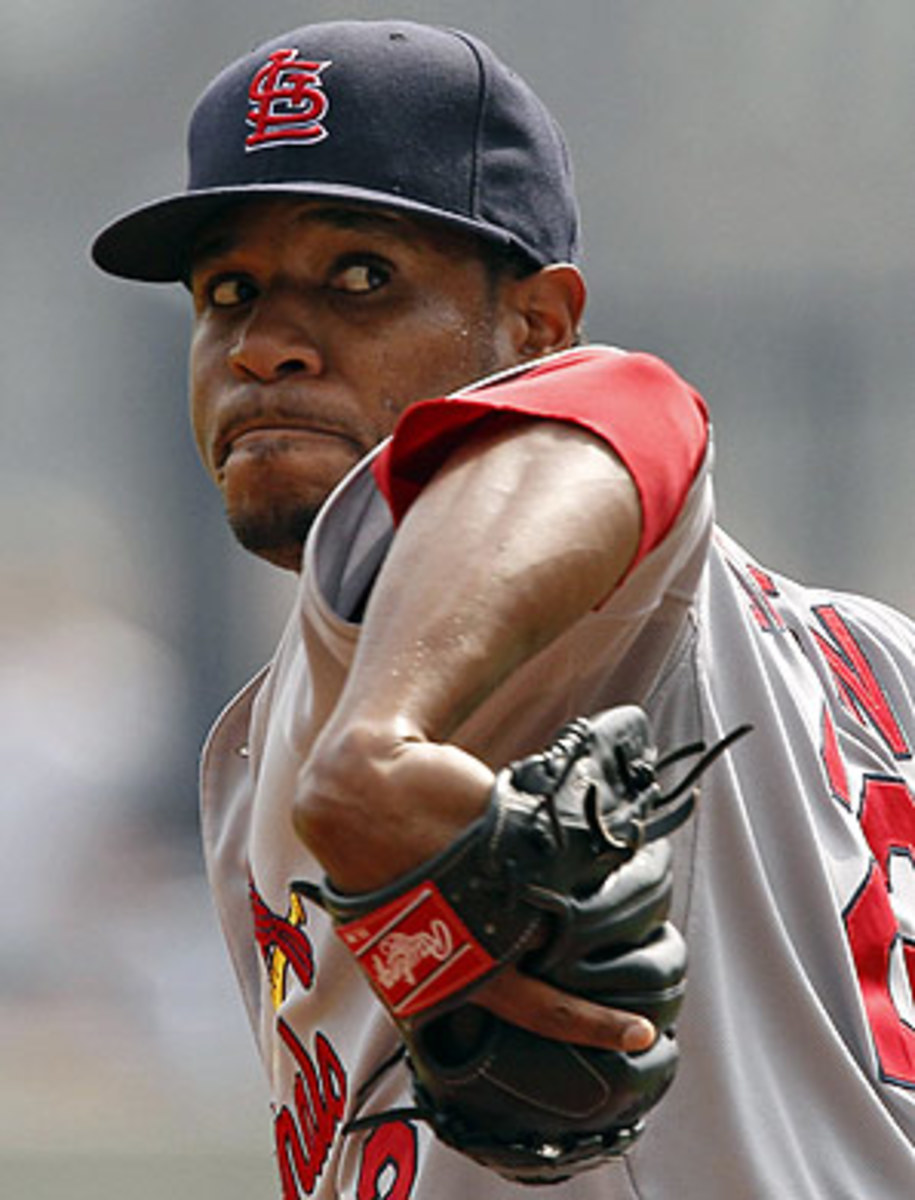
Wilson is gone but the best starting pitcher remains on market
Now that C.J. Wilson has signed a five-year, $77.5 million contract with the Angels, the way is clear for the best free-agent starting pitcher to get paid.
Doesn't sound right? Consider that there's a pitcher available who is three years younger than Wilson, but has been a starting pitcher for three years longer than the lefty. He's a pitcher whose fastball sits at 94-95 mph, against the 91 that Wilson throws. This pitcher has made at least 30 starts in five straight seasons, posted a strikeout-to-walk ratio better than 2:1 the last four, and has improved his pitch efficiency dramatically over the last three seasons.
Without taking anything away from Wilson, who put together two strong seasons as a starter before getting paid, the best buy on this market is Edwin Jackson. Although he didn't have the launch season that Wilson had -- Jackson had a 3.79 ERA in 31 starts and one relief appearance for the White Sox and Cardinals -- he has the skill set, the track record and the youth that make him a more projectable starter over the next five years. Jackson, who helped the Cardinals come back to win the NL wild card and won a key game in the Division Series before stumbling in the last two rounds of the postseason, has almost no buzz around him, none at all relative to what the two left-handers who signed in the past two days, Wilson and Mark Buehrle, have generated.
The reasons for this have little to do with the true values of the pitchers. Baseball's ongoing love for left-handers is part of it; despite studies that show there to be no advantage to having starters who throw with a particular hand, the game has always had a special place for southpaws. Given two pitchers of equal ability or performance level, the lefty will generate more excitement and more interest. Jackson is the best righty on the market, not all that much different from Wilson and Buehrle on value, but less desirable nonetheless.
Jackson also gets forgotten in part because that durability isn't immediately obvious when looking at his stats, because he's been traded in each of the last two seasons. It's a small thing, but you have to pay attention, looking past the fragments of seasons to see that he's averaged 32 starts and 205 innings the past two years, while pitching for three teams in that time. There's also the problem, even in 2011, of using "wins" to evaluate a pitcher. Jackson has been credited with just 22 the past two seasons, while Wilson has 31. Wilson has gotten 6.7 runs per nine innings, while Jackson has had 5.9. Wilson has also pitched in front of better bullpens than has Jackson.
Jackson's performance record holds up well against anyone. Rushed to the majors at 19 by the Dodgers, Jackson didn't establish himself in the majors until 23, when the Rays committed to him during their last poor season, 2007, and got a 5.76 ERA over 161 innings pitched. Jackson took a step forward in '08, lowering his walk rate by about 10 percent and working deeper into games. He improved dramatically after being traded to the White Sox in July of 2010. Working under Don Cooper, Jackson walked just 16 men in 11 starts down the stretch, and followed that by walking 37 in 19 starts prior to being traded again, this time to the Cardinals.
The lessons held when Jackson moved to St. Louis. Over the past three years, Jackson has walked just 7.5 percent of the men he's faced, while striking out 18.5 percent. (All numbers adjusted for intentional walks.) Wilson, by comparison, walked 10.6 percent of his batters faced while striking out 21.3 percent. Jackson isn't perceived as a groundball pitcher, but he matched Wilson's rate in 2010 (49 percent) and wasn't far behind him in 2011 (49 percent to 44 percent).
The key difference between Jackson and Wilson is Jackson's five-year record of taking the ball. He's made 158 starts since joining the Rays' rotation in 2007. Wilson has made 73 starts in his career -- 67 of those the last two seasons. Now, you can spin that a number of ways, but keep in mind that the worst free-agent signings happen when a team signs a player to a contract for more years than a player has ever been worth the money. Think about the Yankees signing Jaret Wright to a three-year deal or Carl Pavano to a four-year contract. Consider the Angels themselves handing a five-year contract to Gary Matthews. Wilson has two years as an effective major league starting pitcher under his belt, and this signing argues that he will more than double that output. We know that Jackson can hold up under a starter's workload, and when laying out the kind of money a free-agent pitcher demands, that certainty has enormous value.
If Wilson has outpitched Jackson over the past two seasons, it hasn't been by very much, and that gap has been exaggerated by factors outside the control of the two. Look past two years of stat lines, and you see that Jackson has significant additional edges in youth, velocity and established durability that make him a more attractive free agent option. The team that takes advantage of the gap in perceived value between the two and gets Jackson for 80 percent of what Wilson signed for will be taking a big step towards success in 2012 and beyond.





